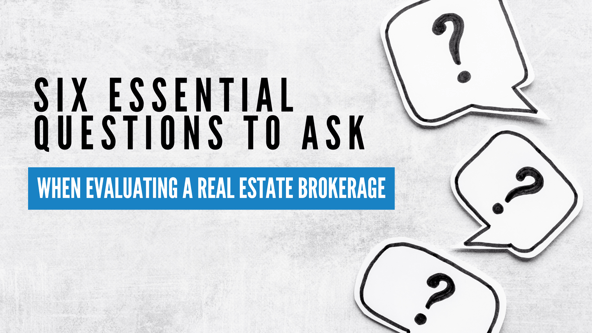
When evaluating a real estate brokerage, especially if you're considering purchasing or merging with one, it's crucial to delve deep into the financial and operational aspects. Having gone through this process myself—acquiring and selling a brokerage—I’ve learned how crucial it is to ask the right questions. If I knew then what I know now, my approach would have been significantly different. This blog will explore six essential questions to help you evaluate a brokerage effectively.
1. What is the Gross Profit of the Company?
Understanding the gross profit is the cornerstone of evaluating a brokerage. Many brokers don't know their gross profit, which is a critical number for assessing the financial health of a business. To calculate it, you need to subtract three main expenses from your revenue:
- Agent Payments: The total commissions paid to agents.
- Referral Payments: Fees paid to agents from other companies or referral partners.
- Royalty Fees: For brokerages under brands like Remax, these are the royalty fees collected from agents.
For example, a brokerage with 50 agents generates $5 million in gross commission income and pays out $4 million to the agents. This leaves a gross profit of $1 million. Understanding this number will guide you in making informed decisions about the business's potential and sustainability.
2. Does the Owner Sell Real Estate?
This question reveals a lot about the brokerage's financials and operational structure. If the owner is actively selling real estate, their commissions might be included in the financial statements. Here’s why this matters:
- Income Reflection: If the owner's sales commissions are included, it can skew the true profitability of the brokerage.
- Accounting Adjustments: Owners might leave money in the business to reduce tax liability. In such cases, you'll need to adjust the net profit by deducting that amount to get a clearer picture of the business’s actual profitability.
3. Does the Owner of the Brokerage Own the Building?
This question might seem trivial, but it can significantly impact the brokerage’s financial evaluation. Owning the building where the brokerage operates presents unique considerations:
- Market Rent: You need to verify whether the rent listed on the income statement reflects market rates. This is crucial because if you’re taking over the lease, you want to ensure that the occupancy costs are accurate.
- Rent Adjustments: If the broker owns the building, they might undercharge themselves for rent or omit it from the financial statements. You’ll need to adjust these figures to understand the true cost of operations.
4. What is the Role of the Manager?
The manager’s role and compensation are critical factors in the brokerage’s success. Managers often handle recruitment, retention, training, and daily operations, making them integral to the business’s profitability.
- Management Duties: Understand the scope of the manager’s responsibilities. Are they solely focused on operations, or do they also contribute to sales?
- Compensation Benchmark: At The Profit Centre, we benchmark the manager’s compensation at 15% of the gross profit. For instance, if a brokerage has a gross profit of $500,000, the manager's salary should ideally be $75,000. If the actual salary deviates from this benchmark, adjust the net profit accordingly.
5. Are There Any Shareholder Benefits?
Shareholder benefits can significantly affect the financials of a brokerage, especially if the benefits aren’t transparent in the financial statements.
- Non-Salary Benefits: Some brokers compensate themselves through benefits instead of a salary. These benefits should be added to the total expenses to get an accurate picture of the business's financial health.
- Adjustment for Clarity: By accounting for these benefits, you ensure that you have a clear and accurate view of the brokerage’s profitability, allowing for better decision-making.
6. What is the Potential Agent Count for the Office?
Finally, understanding the potential for growth in agent count is vital when evaluating a brokerage. The ability to grow the business without expanding physical space can dramatically impact profitability.
- Agent Growth: Assess the potential to increase the agent count within the current office space. For example, if a brokerage currently has 140 agents but can accommodate up to 175, this presents a significant opportunity for growth.
- Profit Impact: Increasing the agent count can significantly boost net profit, making the business more attractive and valuable in the long run.
These six questions are essential for anyone considering acquiring or evaluating a real estate brokerage. Understanding the gross profit, the owner’s involvement in sales, the implications of building ownership, management compensation, shareholder benefits, and the potential for agent growth provides a comprehensive view of the business’s health and potential.
If you have any questions about pursuing mergers and acquisitions or understanding your financial operations powerfully and profitably, feel free to reach out and schedule an appointment with me. I hope these insights are valuable as you navigate the complexities of evaluating a brokerage. Remember, informed decisions lead to greater profitability.
Here's to making your next move a profitable one!





